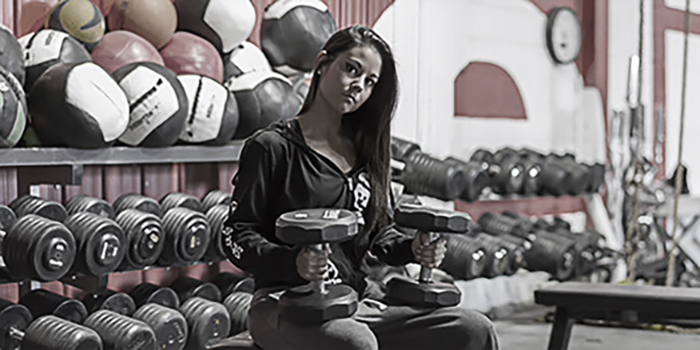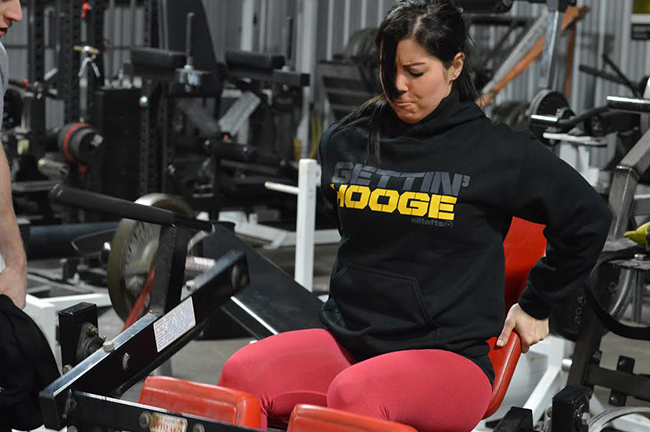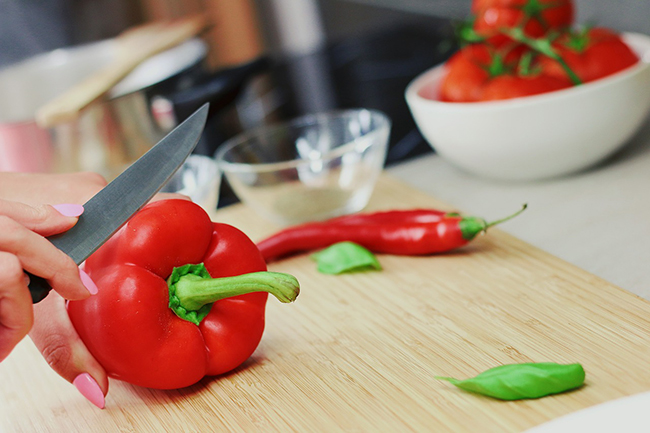
The first show is the worst show.
Almost any physique competitor can attest to that statement. I’ve never met a competitor that said their first show was their shining moment of success. Typically their first prep was filled with a lot of mistakes and learning experiences. So why is the first show the worst show? Partially because 90% of people (including myself) screwed up their first prep big time, or were completely unaware of the expectations. The Contest Prep Survival Guide will be a series of articles designed to help new and veteran competitors make their way to the stage as pain free as possible. I will provide insight on some of my experiences as well as tips and various strategies I’ve used to make my contest prep less of a nightmare. For Part 1 we are going to focus on the basics and how to go about your first competition.
First Thing First: Do Your Research
Before you start your competition journey, I would highly suggest speaking to other competitors about their experiences. The sport of bodybuilding is NOT for everyone, so speaking to a competitor about the ins and outs of their prep, the show itself, their coach, and other factors can give you a lot of insight about the sport. It will also help you decide if competing is right for you and what you need to be aware of. You can search the web, watch posing videos on YouTube, or flip through a bodybuilding magazine, but that is not going to give you the full picture. Speak to a few individuals who compete and get their take on it. Also, keep in mind that their experience is just that: their experience. Your personal experience competing may be completely different, but it is good to at least get an idea of what to expect.
Attend a Show
So now that you have decided you want to compete, whether it be bodybuilding, figure, physique, etc. you need to actually attend a show first as a spectator. I am amazed at how many competitors I meet training for their first competition who have never actually been to a show before. Walking into your first show blind and oblivious to what will be expected would be a horrifying experience. Attend a show, preferably in the same federation you plan on competing in. By attending a show you will get an in person perspective on the different divisions you can compete in and what each division is geared toward. I would also recommend competing in a division that is natural to your body type and your goals. There are so many divisions now that almost any body type and goal set can be accommodated. Compete in a division that flatters your natural shape so you can work with your body, not against it.
Hire a Professional
After you have done your research about contest prep and shows themselves, it is time to seek out a professional to help you along the way. I can’t preach this enough. If you have never competed in a show before, you absolutely need a coach. Unfortunately, there are a lot of bad coaches out there, but on the flip side there are also a lot of good ones. You need to research and find a coach that suites you as a person and suites your budget. We have a ton of resources here on elitefts.com to guide you in the right direction, as well as some phenomenal prep coaches (John Meadows, Shelby Starnes, Ben Hartman, Julia Ladewski, Scott Stevenson). Either way, once you find the coach for you, it is now your job to listen to them. Sometimes this can be the hardest part when entering new territory. Therefore, in order to succeed on stage, you have to trust your coach and work to build that relationship. Depending on the route you go with coaching, your coach may be responsible for your nutrition plan, training, posing, and keeping you as sane as possible through the process. Eating off plan, skipping workouts, and then complaining about not seeing results is probably not the way to go. Be honest with yourself and your coach and things will run much more smoothly.
I Hope You Like to Cook!
If you hired a coach they should take care of any nutrition and supplementation plans for your contest prep. The nutrition aspect of competing is probably the most important and intensive part of any contest prep and must not be taken lightly. It will probably consist of a lot of preparation and cooking that you may not be used to doing, so it will take practice. I personally like to prep all my food on Sunday night for the whole week (which may take a few hours) but then I don’t have to worry about cooking or shopping during the work week. There are also a lot of aspects of food prepping that new competitors don’t think about. For example, weighing your food instead of eye-balling it may be a necessity, as well as paying attention to condiments, added sweetener, and caloric drinks. Again, if you did your research and hired a proper coach they should inform you of all the nitty gritty details that goes into your nutrition plan. At first it may be overwhelming, but it is all part of the process. Underestimating the caloric value of condiments and sugary drinks can destroy your contest prep, and can also be easily avoided if you ask questions and follow directions. On that note, following directions is a simple task, yet many new competitors do not take their plan seriously and end up rushing at the end of their prep to make up for it. If you have a good coach, each food choice and the way it is prepared is done so for a reason. If you have questions about your nutrition plan, ask your coach not your best friend’s mom or workout buddy. Don’t make the mistake of assuming your nutrition plan can be manipulated on your own accord. Always consult your coach before making any changes or ignoring any details.
Train with Purpose
Again, if you hired a coach they may also be planning your training regimen, or at least giving you a guideline. The training aspect of contest is also of vital importance. Trying to train on your own for your first show without any guidance can be a quick road to disaster. Typically, if new competitors are left to their own devices they will overdo cardio, and will not train with enough volume and intensity. Hiring a good coach can help you with this so you understand what your strength training sessions are supposed to feel like. A lot of new competitors underestimate their strength and work capacity so they need that extra push in the gym. Some coaches have training groups with their competition clients, which also provides for great training environment and support system. I trained in a group such as this when I first started and it was extremely helpful and provided me with a good foundation before I ventured out on my own. Remember, your training needs to be based on not only your goals but your current physical state. Everyone’s training will be different depending on where they are at physically and how their body responds to training.
Along with your training you should also include posing practice on a regular basis. The key is to practice, practice, and practice some more. There is no such thing as practicing posing too much, especially when you’re new to competing. You are going to have to hit poses that are super awkward and uncomfortable in front of hundreds or even thousands of people for what can seem like hours. I typically would practice my posing session after training when I am already fatigued. If you can pose after a hard training session, you can definitely pose on stage when you are fresh and full of carbs. Your coach should help you with this, but if you don’t have a coach YouTube will be your new best friend.
Time to Pick a Show
Choosing a show should be based on more than if it is close to where you live, or conveniently timed within the year. You need to also think about your goals when it comes to competing. There are multiple bodybuilding federations you can compete in, and they are slightly different in show design as well as physique expectations. That is also something you must not overlook. Again, do your research and pick a show keeping the federation in mind. If competing is something you want to do because it is on your bucket list, then you can probably choose any type of show you want and be satisfied. If your goal is to eventually receive your pro card and invest a lot of time in competing, then you are going to want to pay more attention to the federation you choose compete in. I personally compete in the NPC, because it is my hope and goal to eventually receive my IFBB Pro Card. Competing in the NPC is the only track to take to make that happen. Competing in other federations at the amateur level would not facilitate my overall end goal, so I choose not to compete in them. There are a ton of federations out there, you just need to find the one that works for you and your goals.
Plan your Finances
Financial planning is huge and can often create a barrier for competitors and they will try to make short cuts. You have to consider your current lifestyle and financial demands. Contest prep takes a lot of time, dedication, and MONEY, therefore at some point sacrifices will have to be made. Financially, competing is very expensive and the last thing you want to be worried about is money. Below is an estimated cost breakdown to compete, also keeping in mind cost varies from state to state, internationally, and between federations.
- Coaching Cost – Between $100-$600 a month….or more.
- Suit Cost (women) – For a new suit between $400-$2,000 (you can get them used for under $500 or event rent them)
- Men’s Trunks - $30 (I know, right? Guys got it easy here.)
- Show Entry – Between $100-$200 (remember this is for one show…if you do multiple shows you will have to pay an additional entry fee)
- Cross Over – $30-$50. Some competitors like to compete in more than one division. That is fine…but it’s going to cost you an extra $30-$50 per division.
- Show Spray Tan – Between $100-$300 (again this is just for one show.)
- Show Make Up (Women) - $100-$200 (this is if you get your makeup done by professionals at the show, you can try to do it yourself but it’s tricky)
- Federation Card - $100-$200 (The fed card will last for one year, but then you have to buy another one to compete the following year)
- Gym Membership - $10-$90 per month
- Supplements - $50-$200 a month depending on your choices or coaches recommendations
- Food – This one varies from person to person. My plans are always very simple and can be achieved in $40-$60 a week if you don’t go 100% organic/natural and buy in bulk. You need to keep food costs in mind and figure out what you will be paying on a weekly basis.
- Travel Cost – Keep in mind any travel costs such as gas, flying, hotels, etc. Again this one varies from person to person, and show to show.
Food for Some Final Thoughts (Literally)
Before beginning a contest prep you need to evaluate where you are physically and mentally. Jumping into a 16 or 12-week prep may not be the best idea if your body or mind is not ready for it. Putting on more muscle (at least for the majority of divisions) is typically a must for a new competitor and that takes time. It isn’t a bad idea to take 16-20 weeks solely focusing on building muscle before actually starting your contest prep simply to build a better base before dieting down. You also have to take into consideration how much food and what type of food you are currently consuming on a day to day basis. My suggestion is, before you even think about doing a show, record everything you eat for a week or two (calories, macronutrients, food type) and record your scale weight every morning. You can use macro/calorie tracker apps to plug in your food or record them from labels. This will help you determine how much food you are actually consuming, and based on your scale weight for that week or two you can estimate if that food intake is dropping, maintaining, or increasing your weight over time. Overall, before you start a contest prep diet, you need to know where you are starting from in regards to a nutrition and training standpoint. Most competitors under eat way too soon and starve their way through prep and don’t train in a progressive manner. It is more of an “all or nothing” mentality which can be very damaging physically and will probably make you look worse. It is way easier, and will make you look and feel better if you take the time to evaluate your starting point. You can also provide this information to your coach which would make their plan for you more effective.
As you can see, there are a lot of variables that go into competing and things to be aware of especially for your first show. Overall I think competing can be a great experience and achievement if done correctly. It is definitely a hard process and is physically and mentally challenging, but when show day comes and you’ve put in 100% effort, it is more than worth it.













